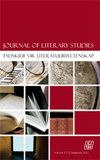非历史修辞:南苏丹的石油、种族和种族灭绝
IF 0.1
4区 文学
0 LITERARY THEORY & CRITICISM
引用次数: 1
摘要
如果有人从Travis(2008)的定义来分析南苏丹的种族灭绝:01),根据该规定,种族灭绝“往往是旨在以牺牲拥有宝贵土地、金钱、劳动力或其他资源的较小、较弱或被认为是‘劣等’群体为代价,使占主导地位的种族、民族、宗教或政治群体富裕的结果行为”。我们可能会认为,当前发生在南苏丹的种族灭绝不能简单地归结为非洲大陆上这个新成立的国家未能建立起一个有效的官僚机构,也不能简单地归结为丁卡人和努尔人之间的种族冲突。南苏丹的种族灭绝是一个有着漫长而复杂历史的过程的产物,但它一直被忽视,因为那些能够采取有意义行动的人正在从大规模屠杀中受益,并将其作为一项经济政策。这篇文章反对当前媒体的议程,这些议程淡化石油因素是持续种族灭绝的主要因素,同时放大种族牌,作为逃避现实的方式,为国际未能处理和承认纯粹出于经济原因而进行的灾难性种族灭绝开脱。本文章由计算机程序翻译,如有差异,请以英文原文为准。
Ahistorical Rhetoric: Oil, Ethnicity and Genocide in South Sudan
Summary If one analyses the genocide in South Sudan from the definition by Travis (2008: 01), according to which genocide is “often the outcome acts designed to enrich a dominant racial, ethnic, religious or political group at the expense of smaller, weaker, or supposedly ‘inferior’ groups that possess valuable lands, monies, labour, or other resources”, it is possible to argue that the current genocide in South Sudan cannot be simplistically reduced to the failure of the newest state on the African continent to establish a functional bureaucracy or reduce it simply to ethnic conflict between the Dinka and Nuer. The genocide in South Sudan is a product of a process that has a long and complex history but one which has been ignored because those who can take meaningful action are benefiting from the mass murder as an economic policy. This article rejects the current media agenda which downplays the oil factor as a key contributor to the ongoing genocide, while amplifying the ethnicity card as an escapist way of exonerating the international failure to deal with and recognise a catastrophic genocide executed purely for economic reasons.
求助全文
通过发布文献求助,成功后即可免费获取论文全文。
去求助
来源期刊

Journal of Literary Studies
Multiple-
CiteScore
0.50
自引率
0.00%
发文量
0
期刊介绍:
The Journal of Literary Studies publishes and globally disseminates original and cutting-edge research informed by Literary and Cultural Theory. The Journal is an independent quarterly publication owned and published by the South African Literary Society in partnership with Unisa Press and Taylor & Francis. It is housed and produced in the division Theory of Literature at the University of South Africa and is accredited and subsidised by the South African Department of Higher Education and Training. The aim of the journal is to publish articles and full-length review essays informed by Literary Theory in the General Literary Theory subject area and mostly covering Formalism, New Criticism, Semiotics, Structuralism, Marxism, Poststructuralism, Psychoanalysis, Gender studies, New Historicism, Ecocriticism, Animal Studies, Reception Theory, Comparative Literature, Narrative Theory, Drama Theory, Poetry Theory, and Biography and Autobiography.
 求助内容:
求助内容: 应助结果提醒方式:
应助结果提醒方式:


